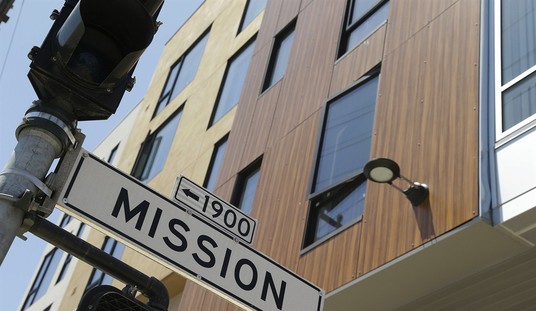Yesterday, the CBS poll showed some bad news for Barack Obama and the Democrats, perhaps driven in part by an attempt to correct earlier sample fudging. Voter approval on Obama’s handling of the economy hit a new low, while Democrats fell even further back on the generic Congressional ballot. With less than four weeks to go, Republican momentum appears to be strengthening:
President Obama’s job approval rating has changed little in the past few months, but with the economic recovery lagging desperately behind where most Americans would like it to be, his work to fix the ailing economy is scoring ever-lower marks.
The public is divided on the overall job he is doing now: 44 percent say they approve, while 45 percent disapprove in a new CBS News poll — virtually unchanged from last month.
The president’s rating on the economy, however, has taken a further plunge in the poll. Now, only 38 percent say they approve of the job he is doing handling the issue – which has been the problem weighing most heavily on the nation’s collective mind for months. Half of those questioned (50 percent) say they disapprove of his work on the economy.
That disapproval extends to Obama’s colleagues on Capitol Hill. CBS shows Republicans with an eight-point lead in the generic Congressional ballot:
Republicans have widened their lead against Democrats among likely voters in the generic ballot for the House of Representatives by six points since last month, a new CBS News Poll reports.
Republicans now hold an eight point lead over Democrats in the generic ballot, with 45 percent of likely voters saying they would support the Republican candidate for the House, and 37 percent saying they would support the Democrat. Last month Republicans led Democrats by a margin of only 2 points, with 40 percent saying they would vote for a Republican and 38 percent saying they would vote for a Democrat.
There’s a reason for the change, although it doesn’t cover all of it. In the September poll, the sampling gave Democrats a seven-point advantage, far above what pollsters like Rasmussen and Gallup show for a national party affiliation advantage for Democrats, usually between 1-3 points. This sample cut that advantage to four points, closer to reality, but only by doing some major adjustments to their raw sample:
Pollsters routinely weight results in order to account for sampling vagaries, but the manner in which this was weighted seems rather significant. CBS boosted the status of independents in the gross sample of adults, but reduced them in the smaller group of registered voters. Meanwhile, in the latter sample (on which most of the results are based), the weighting produced the D+4 final sample, but only by slicing more than 100 respondents out of the survey. Also, note that the weighting and split of the “likely voters” and “effective likely voters” samples are not divulged.
The poll asks plenty of Tea Party questions, but one answer didn’t get enough exposure — and it explains this midterm cycle well. When asked to describe their feelings about Washington in terms of enthusiasm, satisfaction/dissatisfaction, or anger, this was the result:
- Democrats: 5% enthusiastic, 35% satisfied but not enthusiastic, 49% dissatisfied but not angry, 9% angry
- Independents: 1% enthusiastic, 21% satisfied but not enthusiastic, 50% dissatisfied but not angry, 26% angry
- Republicans: 0% enthusiastic, 10% satisfied but not enthusiastic, 55% dissatisfied but not angry, 35% angry
Which of these voter profiles are more likely to show up at the voting booth on November 2nd?









Join the conversation as a VIP Member